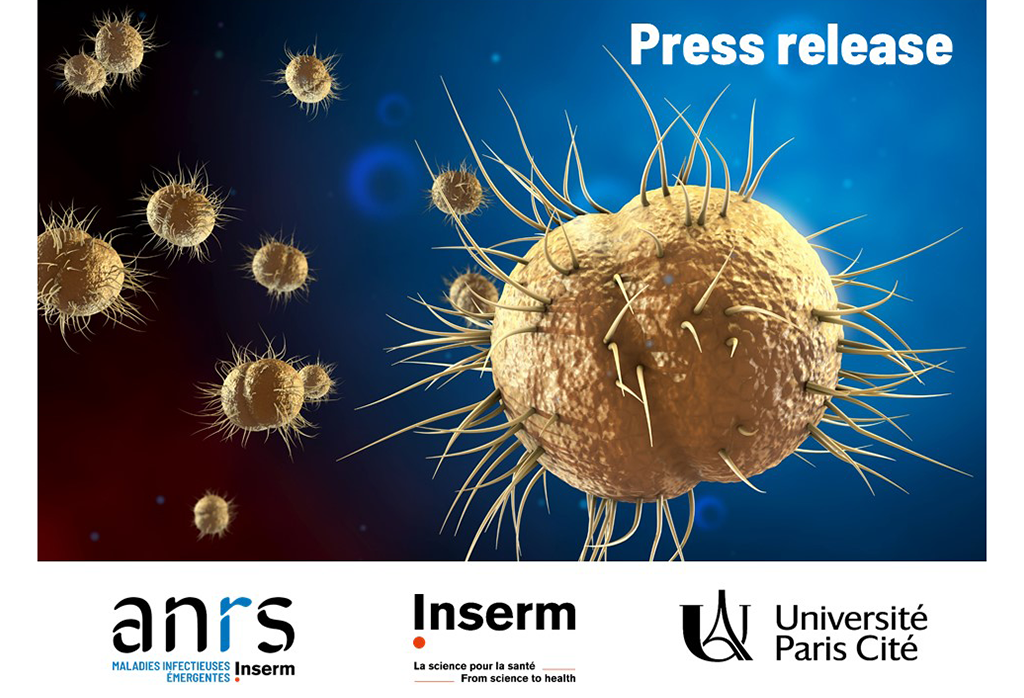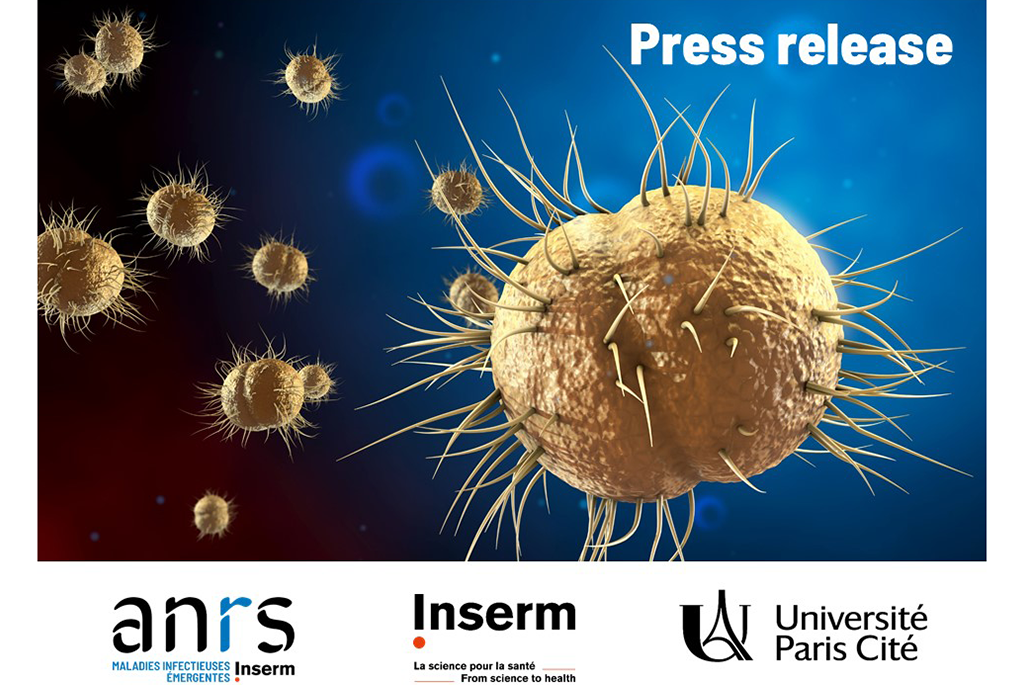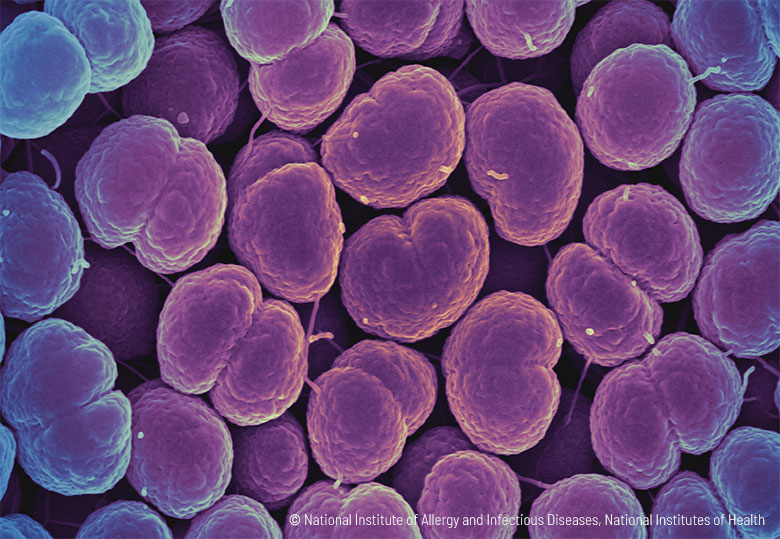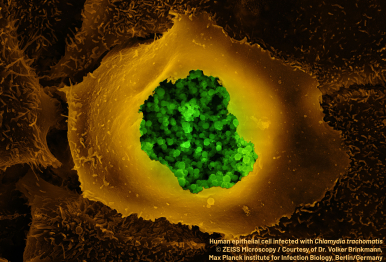
Final results of the ANRS DOXYVAC STI prevention trial
Published on 05 March 2024
The essential
The final results of the ANRS DOXYVAC trial show the post-exposure efficacy of an antibiotic, doxycycline, in reducing the occurrence of chlamydial infections, syphilis and, to a lesser extent, gonococcal infections. However, unlike the results of the interim analysis presented in 2023, they do not allow any conclusions to be drawn on the efficacy of the meningococcal B vaccine (Bexsero®) on the risk of gonococcal infections.
The ANRS DOXYVAC trial, promoted and financed by ANRS Emerging Infectious Diseases in partnership with the Roche laboratory[1], was conducted by research teams from Inserm, AP-HP, Université Paris Cité and Sorbonne Université, as part of the PREVENIR cohort, in collaboration with AIDES and Coalition PLUS. Its results will be presented at the CROI (Conference on Retroviruses and Opportunistic Infections) in Denver, USA, in March 2024.
[1] Roche Molecular System and Roche Diagnostics France provided the kits, consumables and reagents needed to detect Chlamydia trachomatis, Neisseria gonorrhoeae and Mycoplasma genitamium free of charge.
The ANRS DOXYVAC trial has two objectives: to assess the efficacy of a meningococcal B vaccine in reducing the risk of gonococcal infection, and to evaluate the efficacy of doxycycline as a post-exposure prophylaxis against sexually transmitted bacterial infections, when this antibiotic is taken within 24 to 72 hours of sexual intercourse.
Between January 2021 and September 2022, 556 volunteer men who have sex with men (MSM) living in the Paris region were randomly divided into four groups: one receiving post-exposure prophylaxis with doxycycline to be taken within 72 h of unprotected sex with a condom, another receiving pre-exposure vaccination with Bexsero®, the third receiving a combination of these two interventions, and the last receiving neither.
The results of an interim analysis were presented at the CROI in February 2023. They showed the efficacy of post-exposure doxycycline in reducing the occurrence of chlamydial infections, syphilis and, to a lesser extent, gonococcal infections. They also demonstrated the efficacy of Bexsero® vaccination in reducing the risk of gonococcal infections.
However, in 2023, a second analysis of the data carried out by the methodology and management center (CMG) showed results discordant with those of the intermediate analysis. This discrepancy concerned the effect of the meningococcal B vaccine on gonococcal infections. To better understand the reasons for this, the ANRS Emerging Infectious Diseases and the coordinating investigator, Prof. Jean-Michel Molina (Université Paris Cité and the Infectious Diseases Department of Hôpital Saint-Louis and Hôpital Lariboisière, AP-HP) set up an independent audit of the trial, accompanied by a new analysis of the results, both by the CMG and by an independent body. This audit revealed that the discrepancy was due to the omission of a data file at the time of analysis, which therefore failed to take into account a number of infections.
Following these analyses, the final results of the ANRS DOXYVAC trial show:
- Results consistent with the interim analysis concerning the efficacy of post-exposure doxycycline in reducing the occurrence of chlamydial infections, syphilis and, to a lesser extent, gonococcal infections. In fact, the risk of chlamydial infection or syphilis was reduced by 83% in the group receiving post-exposure doxycycline versus those not receiving it. Respectively, the risk of gonococcal infection was reduced by 33% in the doxycycline-treated group versus the non-treated group.
- Contrary to what was initially observed in the interim analysis, the meningococcal B vaccine did not show conclusive effects in preventing gonococcal infections.
- The occurrence of a severe adverse event (erythema[2]) linked to these two interventions in one of the 556 participants.
The final results of the ANRS 174 DOXYVAC trial will be presented at the CROI (Conference on Retroviruses and Opportunistic Infections) in Denver, USA, in March 2024.
[2] Congestive redness of the skin or mucous membranes that disappears with pressure
About:
About ANRS MIE:
ANRS Emerging Infectious Diseases (ANRS MIE), founded on 1 January 2021, is an autonomous agency of Inserm headed by Professor Yazdan Yazdanpanah. Its remit is to facilitate, evaluate, coordinate and fund research into HIV/AIDS, viral hepatitis, sexually transmitted infections, tuberculosis and emerging and re-emerging infectious diseases (in particular emerging respiratory infections – including Covid-19 – viral haemorrhagic fevers and arboviruses). Under the supervision of the French Ministries of Higher Education and Research, and Health and Prevention, ANRS MIE federates an inter-institutional network of national and international physicians and researchers, patient associations and civil society representatives, all fully involved into the governance and operational management of the agency. This co-construction between stakeholders guarantees that projects are implemented in line with expectations, and aims to limit the health, economic and social impact of epidemics.
For more information: https://www.anrs.fr/en/
About Inserm:
Founded in 1964, Inserm is a public scientific and technological institute under the joint authority of the French Ministries of Health and Research. Dedicated to biological, medical and human health research, it is involved in the entire range of activities from the laboratory to the patient’s bedside. It also partners with the most prestigious research institutions in the world that are committed to scientific challenges and progress in these fields.
For more information: https://www.inserm.fr/en/home/
About Université Paris Cité:
Université Paris Cité is an intensive, multi-disciplinary research university in the heart of the capital, which has achieved top international status thanks to its research, the diversity of its courses, its support for innovation and its active participation in the construction of the European research and education area. Université Paris Cité is made up of three faculties (Health, Science, and Society and Humanities), a component institution, the Institut de Physique du Globe de Paris, and a partner research organisation, the Institut Pasteur. Université Paris Cité has 63,000 students, 7,500 teaching and research staff, 2,700 administrative and technical staff, 21 doctoral schools and 119 research units.
For more information: www.u-paris.fr/en/



